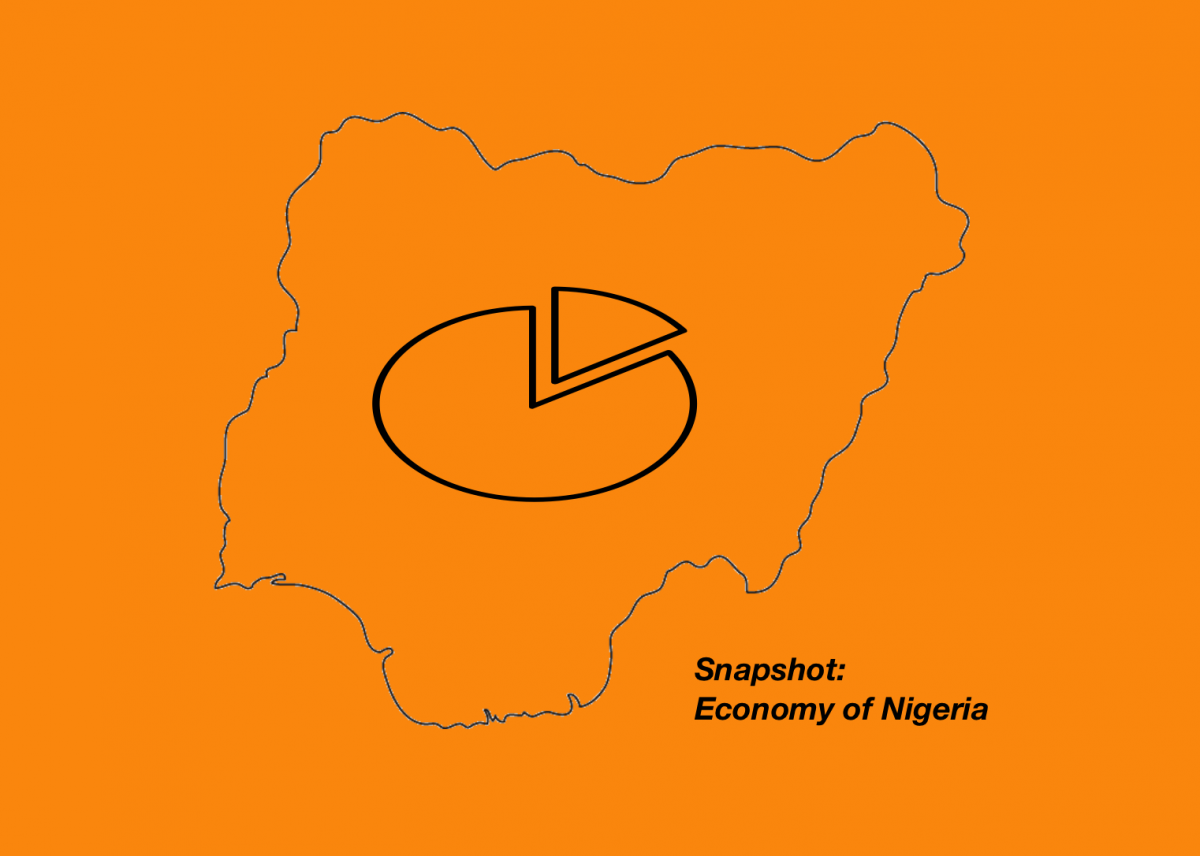The economy of Nigeria is the largest economy in Africa. With a rapidly growing population, where 75.2 percent of the population is younger than 35 years old and are moving towards urban areas, the economic outlook places Nigeria on the list of top 20 economies by the year 2030.
This economic overview will give you a snapshot of the Nigerian economy. As a manager at a multinational firm, this article serves as a quick guide to allow you to compare the Nigerian economy to that of other countries. This ability to understand and compare Nigeria’s economic standing to other regions will ultimately help your company build a strong profile of the Nigerian market.
An Overview of the Economy of Nigeria
The current economic standing of Nigeria is as follows:
- Population: 186 million
- GDP: $404.653 billion (nominal; 2016). (Source)
- GDP per capita: $2,758 (nominal). (Source)
- Inflation rate: 13.34% (Year on change, March 2016). (Source)
Sectors
Information on Nigeria’s major sectors is as follows:
- Major sectors:
Trade
Trade is a very important part of the economy of Nigeria.
Nigeria’s major imports and exports are as follows:
- Major imports (Source)
- Mineral fuels including oil ($8.2B)
- Machinery including computers ($3.9B)
- Electrical machinery, equipment ($1.7B)
- Vehicles ($1.5B)
- Cereals ($1.4)
- Plastics, plastic articles ($1.3B)
- Packaged Medicaments ($955M)
- Telephones ($745M)
- Salt, sulphur, stone, cement ($720M)
- Fish ($691.8M)
- Major exports (Source)
- Crude petroleum ($36.9B)
- Petroleum gas ($7.39B)
- Cocoa Beans($504M)
- Rough Wood ($333M)
- Other Oily Seeds ($292M)
- Coconuts, Brazil Nuts, and Cashews ($152M)
- Scrap Copper ($133M)
- Tanned Goat Hide ($106M)
- Raw Aluminium ($100M)
- Tanned Sheep Hides ($99.4M)
Trade Partners
The countries Nigeria trade with the most are as follows:
- Main export trade partners (2016) (Source)
- India (34%)
- US (9%)
- Spain (5.9%)
- France (5.8%)
- South Africa (5.5%)
- Canada (5.1%)
- Main import trade partners (2016) (Source)
- China (20.3%)
- US (8.3%)
- Belgium (7.6%)
- UK (4.4%)
- Netherlands (4.1%)
Ease of Doing Business
According to the World Bank, Nigeria’s economy ranks at 145 out of 190 countries in regards to how easy it is to conduct business in the country. (Source) This ranking is based on a scoring system comprising of ten different topics, which include starting a business, dealing with construction permits, getting electricity, etc.
Capital Market
- The market value of publicly traded shares: $70.9B (2016) (Source)
- Commercial bank prime lending rate: 17.5% (2017) (Source)
- Foreign Direct Investment: $798M (Sept 2017) (Source)
- Diaspora remittance to Nigeria: $19.6B (2016) (Source)
Moving forward, use this fact sheet regarding the Nigerian economy as a guide to inform your decision making while building up your business in the Nigerian market.

